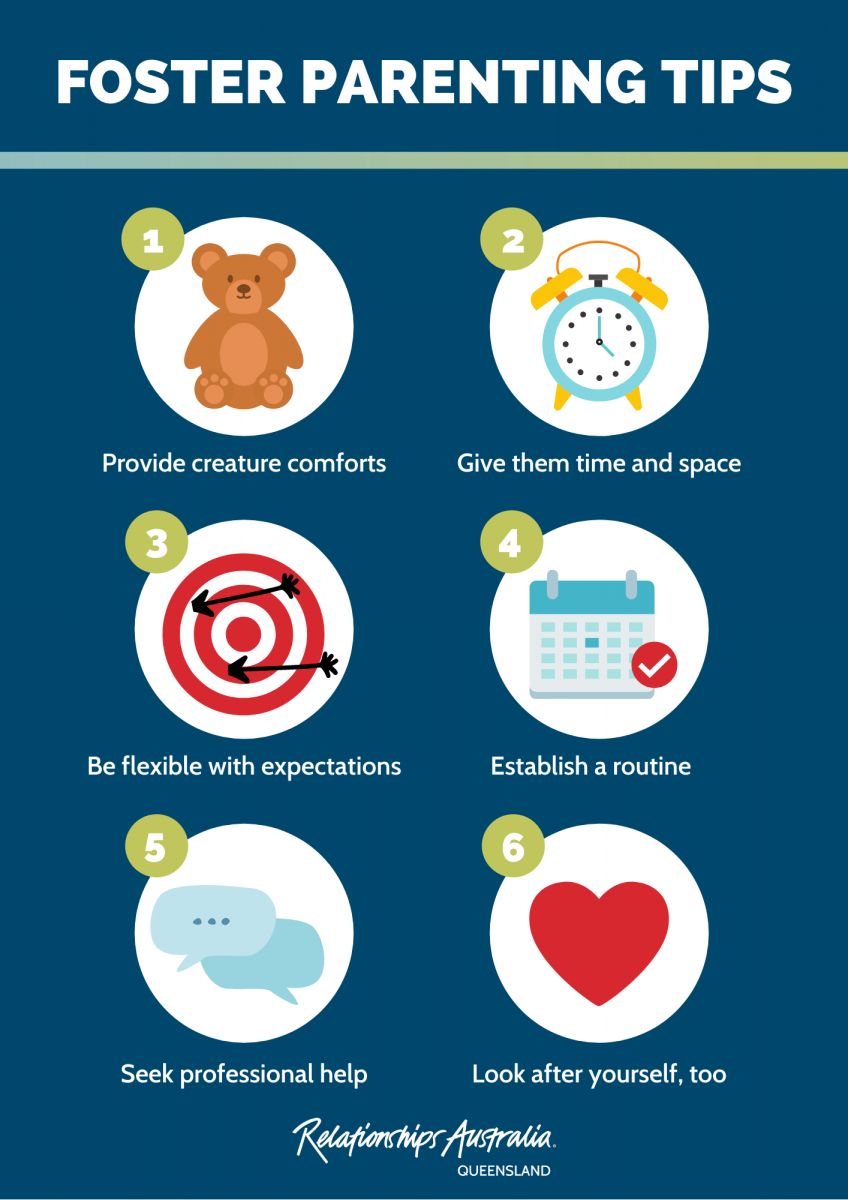All posts
Foster Parenting Tips
Thinking of opening your home and heart to a foster child for the short-term or long-term? Becoming a foster parent is a big step. The journey of a foster carer can have its challenges, but it can also be one of the most rewarding and worthwhile things you ever do. If you’re a new foster […]


Thinking of opening your home and heart to a foster child for the short-term or long-term?
Becoming a foster parent is a big step. The journey of a foster carer can have its challenges, but it can also be one of the most rewarding and worthwhile things you ever do.
If you’re a new foster parent feeling nervous about your first placement, we hope these foster parenting tips help you feel a little more prepared.
Provide their creature comforts
Along with the basics like clean clothes and personal hygiene items, make them feel as welcome as possible by providing their preferred creature comforts. Ask them what their favourite meals and snacks are, and if they’d like a night light or noise machine to sleep.
These small additions can make a huge difference for your foster child, helping them feel at home faster.
Give them time and space
It’s normal for foster carers to want to be there for their foster children right away. But it can take time for children to feel comfortable opening up – especially in an unfamiliar environment.
Give them time and space to get comfortable with their new home and with you. Let them know you’re there for them when they need you, but don’t push them to tell you about their past or how they’re feeling.
Establish a routine
Foster children often come from unsafe, abusive, or negligent backgrounds. They may have lived in chaotic environments where they didn’t know what was going to happen next.
The stability and predictability of a routine can help them feel safe and reduce their stress – and it can also teach and create boundaries. Establish a daily schedule and let them know what’s planned so they know what to expect.
Be flexible with your expectations
You might dream of taking a foster child under your wing, helping them turn their life around and thrive in school and social circles. But it’s important to remember that they’ve likely been through a lot, and they may not achieve the milestones you’ve set for them on your timeline – or ever.
Don’t get too attached to your expectations or how you’d like your time together to go. Instead, be patient and understanding, and support your foster child to do their best at their own pace.
Seek professional help if needed
Your foster child might need extra support processing their trauma and feelings. A professional counsellor can help them explore their emotions and deal with their concerns in a supportive and confidential environment.
This applies to you, too. Caring for a child in need can be stressful and overwhelming at times. Remember to look after yourself and talk to a professional if you need to.
You can learn more about our counselling services here, or call 1300 364 277 to book an appointment.

Back to all posts